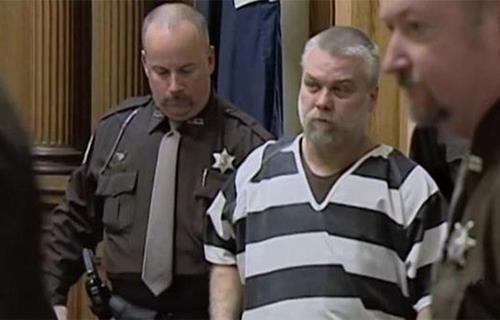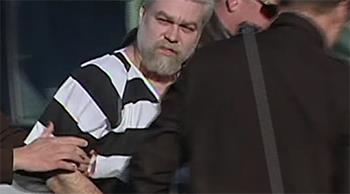
We’ve all seen the stories, way too many of them really, where a DNA test proves someone could not have committed a crime, years or decades after he or she was wrongfully slapped in jail.
Netflix’s new 10-episode series Making a Murderer, which dropped Friday, starts off with what appears to be a classic case of Wrong Guy.
Then it takes a sharp turn, and not in a feel-good direction.
Steven Avery grew up in a small town in Wisconsin, part of a clan that had a reputation for being different from their farm-folk neighbors. The Averys ran a salvage business and were said to run on the wild side.
Steven was the kind of Avery who reinforced that stereotype. He was in regular trouble with the law, mostly over minor stuff that was more annoying than harmful. The family said he was just a friendly kid who liked a good time. Oh, and there was also this: His IQ tested out at 70.
But Steven worked in the family business, got married, had a couple of kids, and loved his new family.
Then one day a local woman was sexually assaulted and nearly beaten to death on a beach. With some encouragement from the police, she said Steven did it.
He had an alibi, but not enough of an alibi. He was sent to prison, where he did 18 years of a 32-year sentence. He says he was told he could have gotten parole if he confessed and repented. He couldn’t, he said, because he didn’t do it.
Finally new DNA tests showed he couldn’t have done it, pointing instead to a career sexual criminal who looked a lot like Steven and whom the police knew, but apparently never seriously considered.
In 2003, Steven Avery was released.
 In 2004 he sued for $36 million, or about $2 million for every year wrongfully served.
In 2004 he sued for $36 million, or about $2 million for every year wrongfully served.
Soon thereafter the feel-good part started to crumble. Within a year Steven was back in the system, by which time we viewers have grasped the real core of Making a Murderer.
The show is less concerned with the what, how and why of crime than the what, how and why of the criminal justice system.
As portrayed here, it’s just as complex, inscrutable and often maddening as the crimes it aims to solve and partly redress.
Significantly, the crimes and punishment in Making a Murderer are large and serious. The reasons and motives often are small.
Steven Avery had fallen out with a cousin, seemingly over the garden-variety stuff that lies behind most family standoffs. She said this, he did that and the feud took on a life of its own.
This series, filmed over 10 years, suggests that the feud mattered because the cousin had friends among the law enforcement officials who handled Steven’s cases.
Making a Murderer spends much of its time exploring whether the cards were marked against Steven Avery, and the implication of that question: If the lady with the scales of justice isn’t really blindfolded, how can we trust the whole system?
Unlike with many Netflix series, it’s not likely that viewers want to watch this one all at once.
In the first place, it’s not told in a fast-paced, slick documentary style. It takes its time, using real-life film that wasn’t selected for its polish and real-life interviews that weren’t selected for their glibness.
It’s also a troubling story. We like some of the characters and don’t like others, but the story itself is neither easy nor fun to watch. It’s more a vegetable story, important and good for you.
Making a Murderer joins a modest flock of other recent crime anthologies, from the podcast Serial to ABC’s fictional American Crime. They have different personalities, but Steven Avery’s story has at least this in common with every other one: It demonstrates conclusively that anyone who thinks that understanding crime and criminal justice must be simple doesn’t understand it at all.